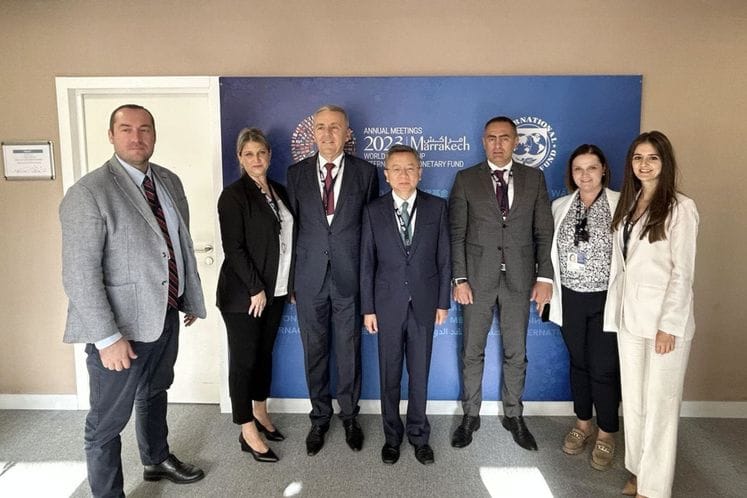- Government of Montenegro
Continuation of meetings by the Montenegrin delega...
Continuation of meetings by the Montenegrin delegation in Marrakech

During the second day of the annual meetings of the International Monetary Fund (IMF) and the World Bank in Marrakech, the Montenegrin delegation, led by Governor of the Central Bank of Montenegro (CBCG) Radoje Žugić, and Minister of Finance Aleksandar Damjanović, held a meeting with IMF Deputy Managing Director Bo Li.
Presenting the situation in Montenegro's banking sector, Governor Žugić emphasized that the banks are stable, highly liquid, and adequately capitalized. Assets, loans, deposits, and capital, as key banking categories, show high annual growth rates, with a decrease in non-performing loans. To mitigate the risks arising from unfavorable interest rate movements and enhance supervision in this area, Governor Žugić requested technical assistance from the IMF in implementing the European Banking Authority's guidelines for managing interest rate risk in the banking book (IRRBB).
Discussing the latest macroeconomic and fiscal trends, Finance Minister Damjanović pointed out that Montenegro's public debt, at the end of September, exhibits a declining trend, reaching a level below 60% of GDP in net terms. He also mentioned that Montenegro had borrowed only 100 million euros out of the approved 600 million euros by the Parliament's decision during the current year.
Later in the day, Governor Žugić and Minister Damjanović participated in a meeting of the Belgian-Dutch Constituency of the International Monetary Fund and the World Bank, where global economic conditions and the challenges facing the world economy were discussed. The participants agreed that, in the context of ongoing high inflation and strong fiscal pressures, a systematic approach to creating and implementing monetary and fiscal policies is needed. The primary objectives are to preserve price stability and ensure the sustainability of public finances. Stable and sound public finances are crucial for providing the necessary fiscal space to address future challenges, according to the meeting.
